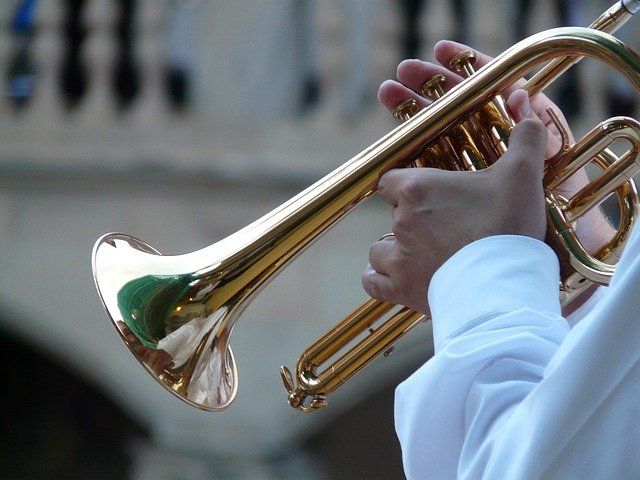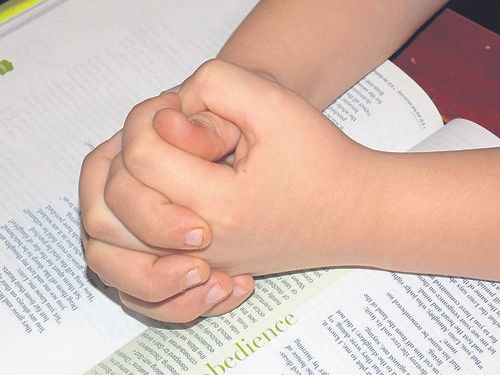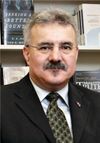Classical Evangelical spirituality holds that every aspect of the believer’s spiritual life comes from the work of the Holy Spirit. This persuasion is ultimately rooted in Scripture.
Historically speaking, however, the conviction has come down to Evangelicals via the continental Reformers of the sixteenth century, and from John Calvin (1506-1564) in particular. Calvin had a distinctive concern with the person and work of the Holy Spirit, and Benjamin B. Warfield (1851-1921), the distinguished American Presbyterian theologian, actually refers to Calvin as ‘preeminently the theologian of the Holy Spirit’.
The Spirit of supplication
Considered from a historical vantage point, this Evangelical interest in the work of the Spirit as it relates to spirituality has run in at least four main channels: (1) a focus on the Word, in keeping with the Reformation assertion of sola scriptura; (2) an elevation of preaching as the primary means of grace; (3) this biblicism, in turn, led to a ‘spirituality of time’ that was oriented around the Lord’s Day; and (4) a passionate interest in prayer and communion with God. We have considered the first of these themes in the previous article. This month we focus our thoughts on the last of these matters.
Prayer is vital to any biblical spirituality. Consider, for instance, the Puritans, men and women who wrote a great deal about this subject and who were themselves, in the words of John Geree (c.1601-1649), ‘much in prayer’.

Since, like Calvin, the Puritans had a deep interest in the Holy Spirit, it is no surprise to find them rooting their discussion and experience of prayer in the Spirit and his work. A cluster of biblical texts were central in giving shape and substance to their reflections on this vital subject.
These texts include the description of the Holy Spirit as ‘the Spirit of grace and supplication’ (Zechariah 12:10); the admonition to both ‘pray in the Holy Spirit’ (Jude 20; cf. Ephesians 6:18) and pray for the Spirit (Luke 11:13); the experience of calling upon God as ‘Abba, Father’ (Romans 8:15-16; Galatians 4:6); and that unique passage on the Spirit’s intercessory work (Romans 8:26-27). In what follows, we want to ponder the Puritan discussion of prayer as it is found in their interpretation of one of these texts, namely, Romans 8:26-27.
Creator of prayer
If there is one Scripture to which the Puritans gave first place in elucidating a doctrine of prayer, it was Romans 8:26-27. To them this passage indicated that the Spirit is the creator of all genuine prayer.
David Clarkson (1622-1686), who assisted the famous scholar John Owen (1616-1683) for a number of years, gives a detailed analysis of this passage along these lines, in a sermon entitled Faith in prayer.
He speaks for the Puritan tradition when he states: ‘It is [the Spirit’s] function to intercede for us, to pray in us, i.e. to make our prayers. He, as it were, writes our petitions in the heart, we offer them; he indites a good matter, we express it. That prayer which we are to believe will be accepted is the work of the Holy Ghost; it is his voice, motion, operation, and so his prayer’.
Prayer is active
The Spirit, then, stands behind all genuine praying. But this should not be taken to mean that the Christian at prayer is passive in the Spirit’s quickening hands, or should do nothing until the Spirit moves.

William Gurnall (1617-1679), one of the few Puritans who remained in the Church of England after the Act of Uniformity in 1662, declares that the Holy Spirit ‘doth not breathe in us as one through a trunk or a trumpet, which is a mere passive instrument’. There is, Gurnall suggests, ‘a concurrence both of the Spirit of God and the soul or spirit of the Christian’ in the act of prayer. Both are active.
In this regard, the Presbyterian Thomas Manton (1620-1677) observes: ‘we are not to stay from our duty [of prayer] till we see the Spirit moving; but to make use of the power we have as reasonable creatures … and in the way of duty to wait and cry for the necessary influences of the Lord’s Spirit’.
A typically pithy Puritan saying from John Owen well sums up the matter: ‘The gifts of the Holy Ghost are the fire that kindleth all our sacrifices to God’.
Needing help
The first two clauses of Romans 8:26-27 indicate why we need the Spirit’s help when it comes to praying. We have infirmities and we simply do not know what to pray for as we ought.
Numerous Puritan authors commented at length on the meaning of these two clauses, but I will limit myself to three sources as representative. They are Thomas Manton’s sermons on these verses; John Owen’s A Discourse of the Work of the Holy Spirit in Prayer; and the comments of John Bunyan (1628-1688) in I will pray with the Spirit. A consideration of these works will bring us to the very heart of the Puritans’ case, namely, that the Spirit’s aid in prayer is a vital necessity.

First, it is only by the Spirit that a person can think rightly of the One to whom he or she prays. ‘They then’, writes Bunyan, ‘not being able to conceive aright of God to whom they pray, [or] of Christ through whom they pray … how shall they be able to address themselves to God, without the Spirit to help this infirmity?’
The Spirit, and he alone, can reveal the Father and the Son as the proper recipients of prayer. In the words of Manton, ‘We cannot speak of God without the Spirit; much less [can we speak] to God’.
Then, as Bunyan further explains, it is only the Spirit who can ‘shew a man clearly his misery by nature, and so put a man into the posture of prayer’. Thomas Manton expands the idea. ‘Serious dealing with God in prayer is wrought in us by the Spirit, in whose light we see both God and ourselves, his majesty and our vileness, his purity and our sinfulness, his greatness and our nothingness’. Thus are we brought to reverence the One to whom we pray.
Centred on Christ
Such a consciousness of sin and of the awesomeness of God, however, might cause the believer to flee from the divine presence. And that is what he would do, were it not for the Spirit’s encouragement and enabling to run in the opposite direction, namely, to God for mercy through the Son.
As Owen observes, ‘It is the work of the Holy Spirit in prayer to keep the souls of believers intent upon Jesus Christ, as the only way and means of acceptance with God’. Manton further explains: ‘Christ is the way by which we come to the Father, and the Spirit [is] our guide, which causeth us to enter in this way, and goeth along with us in it. We cannot look aright to the blessed Father, but we must look to him through the blessed Son, and we cannot look upon the Son but through the blessed Spirit’.

Moreover, it is the Spirit alone who can enable a person, fully conscious of his sinful nature, to address God as ‘Father’. Bunyan remarks: ‘here is the life of Prayer, when in, or with the Spirit, a man being made sensible of sin, and how to come to the Lord for mercy; he comes, I say, in the strength of the Spirit, and cryeth, Father’.
Sweetness and satisfaction
Thomas Manton notes that the Spirit’s work in this regard is central to the whole act of prayer. ‘A great part of the life and comfort of prayer consisteth in coming to God as [to] a reconciled father’.
Owen stresses the subjective element of coming to God as Father. After quoting Ephesians 2:18 (‘Through [Christ] we have access by one Spirit unto the Father’), Owen writes: ‘No tongue can express, no mind can reach, the heavenly placidness and soul-satisfying delight which are intimated in these words. To come to God as a Father, through Christ, by the help and assistance of the Holy Spirit, revealing him as a Father unto us, and enabling us to go to him as a Father, how full of sweetness and satisfaction is it!’
When John Bunyan lay dying in August 1688 he said, ‘The Spirit of Prayer is more precious than treasure of gold and silver’. Hopefully this brief study will bring us to a similar conviction that the Holy Spirit, who is the taproot of all Christian spirituality and the inspirer of prayer, is more precious than all the treasures of this world.
Pray for the Spirit
Permit me, then, to conclude in Puritan style, with a couple of points of application. Firstly, we must be careful not to grieve the Spirit. As Thomas Manton reminds us, ‘The Spirit is a stranger to you in prayer, when you neglect his other motions’.
Secondly, since the Spirit’s presence and work are so vital for spirituality, Puritan preachers and teachers would urge us, in the words of Bunyan, ‘to pray for the Spirit, that is, for more of [him], though God hath endued them with [him] already … The Lord in mercy turn the hearts of the people to seek more after the Spirit’.




